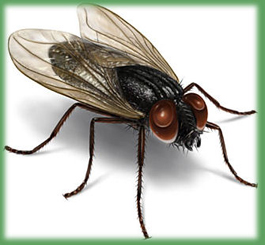home | north bay bohemian index | sonoma, napa, marin county restaurants | morsel

Yummy Maggot Cheese
By P. Joseph Potocki
For centuries, rural cheese makers and big city aficionados in various parts of modern Italy, Germany and France have enjoyed what we'd consider a bizarre and repulsive cheese product certain never to be stocked anytime soon: European farm cheeses deliberately infested with locally favored fly eggs or larvae.
Sardinia's version is called formaggio marcio, meaning "rotten cheese," or casu marzu, "maggot cheese." Both names abundantly apply. This time-honored sheep's milk cheese not only gets aged into a near toxic viscous goo, attracting enthusiasts with its napalm burn, outhouse aroma and fermenting microbes, maggot cheese likewise lays claim to a mouth-feel difficult to put into words.
Casu marzu was outlawed until 2005 when "raised" flies, rather than "wild" ones, became available to produce the maggots. And, yes, it's actually considered a delicacy. Sardinians enjoy this rare delicacy by slathering heaping glops of casu marzu on rinsed slices of local flatbread. They fold the wetted bread around their prize before gobbling their treasure down. The casu marzu snaps, crackles and pops effervescently with each bite as hundreds of maggots prance merrily about the insides of one's grateful maw. Word is strong red vin ordinaire is the must accompaniment. It's not hard to imagine why.
Diners customarily brush extra-eager squirmies who don't make it all the way to one's mouth off shoulders and out of hair before returning to civilization. As you might expect, casu marzu provides local medical practitioners with certain challenges we'd hope not to see here in the States. It seems that undigested maggots have the nasty habit of eating straight through a human's stomach lining.
Send a letter to the editor about this story.
|
|
|
|
|
|